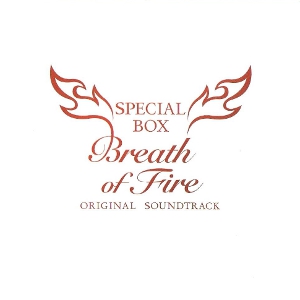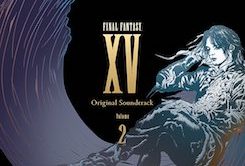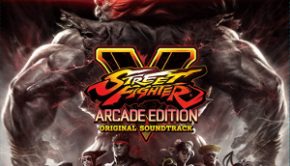Breath of Fire Original Soundtrack Special Box: Breath of Fire III
 |
Album Title: Breath of Fire Original Soundtrack Special Box Discs 5, 6, 7 |
| Record Label: Suleputer |
|
| Catalog No.: CPCA-10150/52 |
|
| Release Date: March 31, 2006 |
|
| Purchase: Buy Used Copy |
Overview
In 1997, Capcom’s female duo Akari Kaida and Yoshino Aoki turned around the convention of RPG soundtracks by creating a light jazz-based soundtrack for Breath of Fire III. Given the time it was created, the soundtrack often features simple arrangements and dubious synth. However, the compositions within tend to be both stylistically inspired and melodically memorable. The results received mixed reviews among gamers, but have continued to be treasured by many soundtrack listeners. Until recently, all consumers had was a woefully-incomplete single disc release of the soundtrack featuring omissions of many major setting, battle, and subsidiary themes. Eventually Capcom resolved that with an expensive box set, featuring three discs of music from the game, though not all the exclusives are worth paying big money for…
Body
Starting with an item featured in the one disc soundtrack, the game’s world map theme “Without a Care” was quite daring at the time of its release. The track presents a fairly memorable melody on xylophone above some funky jazz stylings. The resultant track is a refreshing departure from RPG norm yet somehow fits the worldview of Breath of Fire III quite well, at least until the second overworld theme took over. That track, “To the Distant Place,” is a very cohesive piece of music, despite its blend of stylistic elements. Compared with its counterpart, it has a slightly more reflective tone given the progression of the game, enhanced by the use of a woodwind lead and serene strings. This track is actually exclusive to the box set and was one of the main highlights to be omitted from the first soundtrack release.
“Half Done is Not Done” serves as the first dungeon theme in the title. Again, its light jazz stylings are absolutely adorable and the interplay between the playful xylophones and chalumeau clarinets is especially effective. “Country Living” and “Breaking the Mold” meanwhile are interesting contrasts, as jazz and electronic arrangements of the same bouncy melody. Other delightful tunes include Aoki’s “My Favorite Trick”, an eccentric depiction of a mad scientist, and “The Town Loved by the Wind”, a funny town theme exclusive to the box set. These have both been long favorites of mine and it’s great that the latter has finally made it to album form. Sadly, not all the light-hearted tracks here are so delightful and some tracks are so similar in nature that the soundtrack can grow repetitive. Plenty of exclusive pieces on the box set, such as “Clumsy March”, “Intermission”, and a set of four character themes, are particularly shallow and irritating.
There is nevertheless a fair amount of diversity elsewhere on the soundtrack. “Eden” is an imitation of commercial smooth jazz with its laidback pacing and blend of acoustic and synthesised elements. Yet while it could have been disgusting, it’s actually very pleasant and atmospheric, especially with the acoustic guitar performances and scenic bird tweets. Among the exclusives to the box set, “Falling Green” is an interesting but somewhat disjointed twist on Chrono Trigger‘s forest bass line, while the portrayal of Wyndia Castle brings some majestic orchestrations to the table. “Island” and its near-identical arrangement “Avoiding Death” enter another area in the jazz world with their Latin-inspired rhythms and saxophone melodies. Yet despite the exotic setting, there are still some slightly sinister vibes featured here. Finally, the last dungeon theme “Castle in the Sky” is another Mitsuda-inspired track that has a more downbeat and ambient feel, but is nowhere near dull or aseptic.
The battle themes maintain stylistic continuity with the various setting themes, but have a more energetic feel to them. “Do Your Best” features more bouncy melodies and funk licks, but punctuates it with rhythm guitar chords and answering keyboard phrases. The resultant track somehow manages to simultaneously be easygoing yet motivating at the same time, which is perfect given the context. “DONDEN” meanwhile ups the intensity somewhat and is reminiscent of the epic rock-orchestral battle themes found on more conventional fighting soundtracks. Perhaps the most enjoyable are exclusive to the box set, however, including the multi-tiered “Angels and Dragons” and “Dragon Asymmetry”. And, amazingly, the last battle theme “Self-Determination” is also an exclusive here… and a delightful one at that. With its ominous introduction, epic guitar melodies, and elating development, it’ll help to reassure many that purchasing the expensive box set was worthwhile.
There are several major tracks to round off the soundtrack. “An Offering to the Dragon” is the main rendition of the main theme, initially exposed in the unremarkable “Opening” and a woodwind-based arrangement. More interesting is the fully-fledged rendition at the climax; the melancholy string melody and deep synthy accompaniment make a much bigger emotional impact here and there is also a fascinating evolution into a more uplifting section towards the end. “Stairs ~Ending~” is a short piano-based track that features increasingly elaborate orchestration. As the track progresses, there is a recapitulation of “An Offering to the Dragon” which is surprisingly touching. More disappointing is the ending vocal theme, “Pure Again”, with its derivative J-Pop stylings. The use of the composers themselves as vocalists doesn’t quite work here, although they put in good efforts. What’s more, the instrumentals are largely quite derivative and repetitive, despite a decent guitar solo.
Summary
Overall, the Breath of Fire III soundtrack is an interesting twist on RPG soundtrack conventions. Though it features the usual set of setting, dungeon, and scenario themes, they’re all different from the norm with their jazz stylings and upbeat nature. However, the full soundtrack for the game on the box set can be very repetitive with its similarly styled pieces and abundance of filler tracks. Consumers would be wise to consider whether they want to go for the one disc release of the soundtrack, despite its notable omissions, or instead head for the full box set release with its filler and pricetag.
Do you agree with the review and score? Let us know in the comments below!
4
Posted on August 29, 2010 by Chris Greening. Last modified on May 26, 2014.














